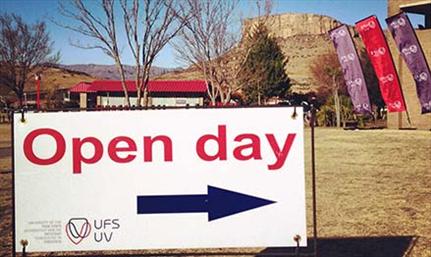Latest News Archive
Please select Category, Year, and then Month to display items
02 January 2025
|
Story Gerda-Marie van Rooyen
|
Photo Supplied
 Leading the research in South Africa is Prof Linus Franke from the Department of Soil, Crop and Climate Sciences.
Leading the research in South Africa is Prof Linus Franke from the Department of Soil, Crop and Climate Sciences.
Scientists are actively pursuing the successful breeding of diploid hybrid potatoes from inbred lines. This is expected to revolutionise potato breeding as it holds the key to rapid genetic progress. It will introduce new varieties for commercialisation through seed. Currently, existing potato variants have a gene that renders self-pollinated seeds infertile.
Prof Linus Franke, an academic in the Department of Soil, Crop and Climate Sciences at the UFS, is leading the research in South Africa. “This technology allows the production of genetically uniform potato seed that is easy to transport and largely disease-free.” He says this differs from conventional breeding whereby only vegetative propagation is possible due to tetraploid varieties in potatoes. It also risks carrying pests and diseases from one generation to the next – leading to the accumulation of pests and diseases with each round of multiplication.
Seed innovation
Prof Franke explains that Solynta BV, a seed company based in the Netherlands that produces potato varieties that can be grown from seed, has included South Africa in their research efforts because it is one of Africa’s largest producers and exporters. Through his academic relationship with Wageningen University and Research, a Dutch institution renowned for its agricultural endeavours and food production, the UFS became involved in researching hybrid potatoes grown from seed.
Diploid seeds containing two sets of chromosomes allow easier gene manipulation to increase predictability and speedier genetic progress. The breeding approach enables the incorporation of tolerance to pests, diseases, abiotic stresses (cold, heat, drought) and other desired genetic traits.
Although Prof Franke is optimistic about this research, he is not blind to disadvantages. “Potato seeds are tiny and have little energy reserves, making it harder to grow potatoes from seed than from tubers.” He says potatoes from seed will take longer to cultivate than tubers, as farmers need to grow plantlets from seeds first, adding six weeks to the growing period. “It is possible that commercial farmers can grow potatoes directly from seed. Alternatively, perhaps more likely, specialised growers will produce tubers of potatoes from seed; these tubers are then sold as seed tubers to other potato farmers, who then continue their normal practices of producing potatoes for the market from tubers.”
Financial benefits
Prof Franke says farmers have reason to get excited. “Seed potatoes will reduce input costs, as varieties with enhanced tolerance to pests and diseases require less pesticides. Planting one hectare of potatoes requires three to four tonnes of potato tubers, but only one 25 g packet of potato seeds.” Since potatoes are a more valuable commodity than maize, this technology might also increase farmers’ income potential.
Qwaqwa Campus Open Day a big success
2013-08-12
|
 |
12 August 2013
Photo: RooistoelTV |
Thousands of learners in their colourful uniforms descended on the UFS Qwaqwa Campus to attend Open Day 2013.
This annual event enables learners and community members to know more about the study programmes that the campus offers as well as information regarding financial aid opportunities, sports and culture, health and wellness, residence life, amongst others.
During the formal welcome session, the learners were given a better understanding of what the university is all about.
Campus Principal Prof Prakash Naidoo gave the learners what he referred to as the top reasons why all the students in attendance would find it attractive to enrol with the Qwaqwa Campus in 2014.
“We have a diverse culture where everybody feels welcomed. We are also the fastest transforming university in the world. Our unique UFS101 learning programme teaches you about life in general. There’s no doubt that we have the best Vice Chancellor and Rector in Prof Jonathan Jansen,” Prof Naidoo said.
In encouraging learners to work harder in order to achieve the goals that they had set for themselves, Dr Elsa Crause, Campus Vice Principal: Academic and Research, emphasised on the importance of reading. “Reading and studying hard are important if you are to succeed in life. For you to achieve the best and to make your student life interesting, you must read as much as you write,” she said.
After the formal welcome session that included entertainment by students, the learners were ushered to various faculties and departments to give them first-hand experience of what it feels like to be a Kovsie.